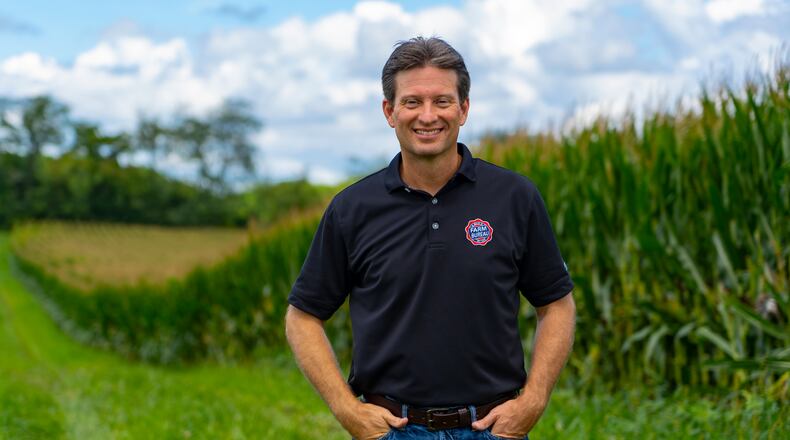Water quality has long been a priority issue for our organization. We have worked alongside legislators to put regulations like Senate Bills 1 and 150 in place to determine who can apply nutrients to farm ground and when those nutrients can be applied.
We asked for funding to help farmers across the state put in place more and improved best management practices for clean water and received those funds through the H2Ohio water quality initiative. Thus far, we have seen a $170 million investment in H2Ohio. This money is going directly to farmers to implement voluntary conservation practices on their land.
In addition, Ohio agriculture has teamed up with environmental, conservation and academic communities to form the Ohio Agriculture Conservation Initiative (OACI). This first-of-its-kind partnership offers resources and education that farmers need to proactively employ modern, science-based practices on their farms and better demonstrate how those efforts are improving water quality over time.
Farmers take clean water seriously.
The latest legislation that deals with water is HB 175, which looks to change the definition of “ephemeral stream” in Ohio’s Revised Code to “ephemeral feature” and, in turn, excludes the term from the definition of “waters of the state.” The bill does not directly impact agriculture operations.
Here’s why.
If the definition of “ephemeral stream” is changed in the Ohio Revised Code, farmers, particularly those who work with a greater number of livestock on Concentrated Animal Feeding Operations (CAFOs), will continue to be held to their legal requirements, which allow ZERO discharge of pollution.
Every CAFO is required by law to develop and implement a manure management plan that specifies best management practices for manure and wastewater handling and disposal, must conduct inspections and monitoring and keep stringent records and must submit an annual report to the Ohio EPA about its operations. All of these regulations are in place now and will not be changed, even if the definition of “ephemeral stream” within the Ohio Revised Code is.
And all farms, regardless of size, will remain regulated under Ohio Revised Code rules known as the agricultural pollution abatement law. Ohio’s agricultural pollution abatement law prohibits farms from degrading the waters of the state with manure, soil or other waste products. Those regulations also will not be impacted by the changes in HB 175.
Ohio Farm Bureau has advocated for healthy water for decades and has helped our members and lawmakers strike a balance that allows for the production of food and maintaining clean water. Fortunately for all of us, farmers are just as passionate about clean water and work hard everyday to keep water healthy long before it gets to their neighbors downstream.
Adam Sharp is the executive vice president of the Ohio Farm Bureau.
About the Author
